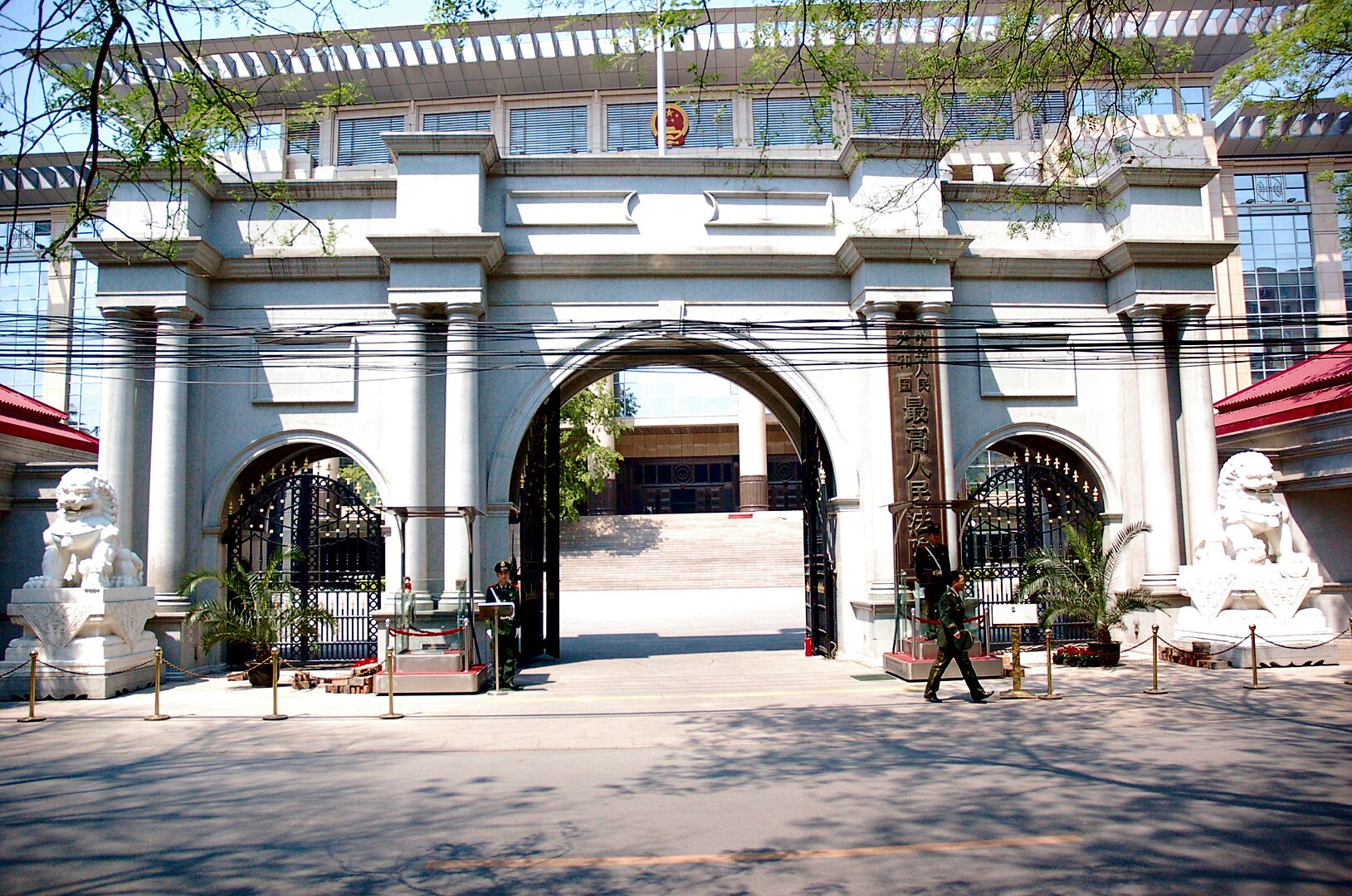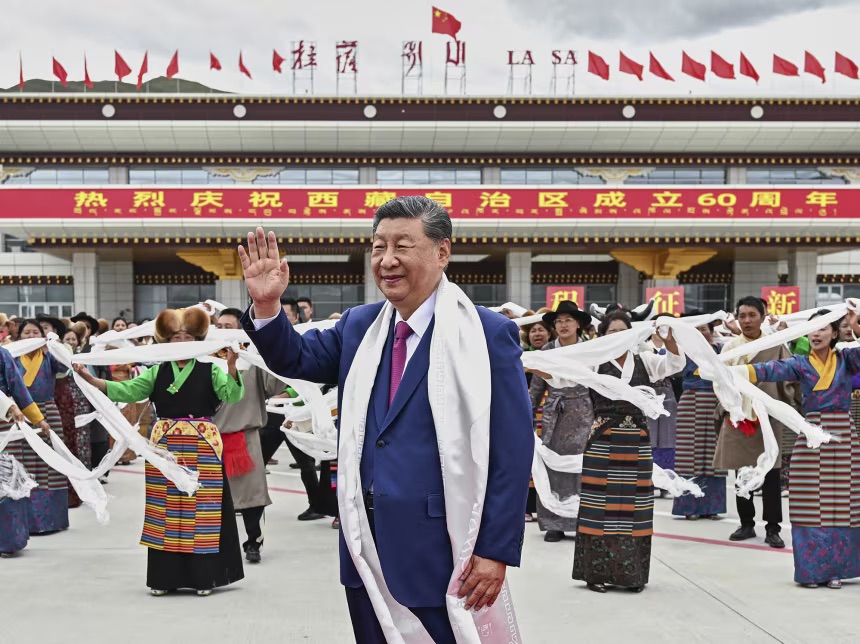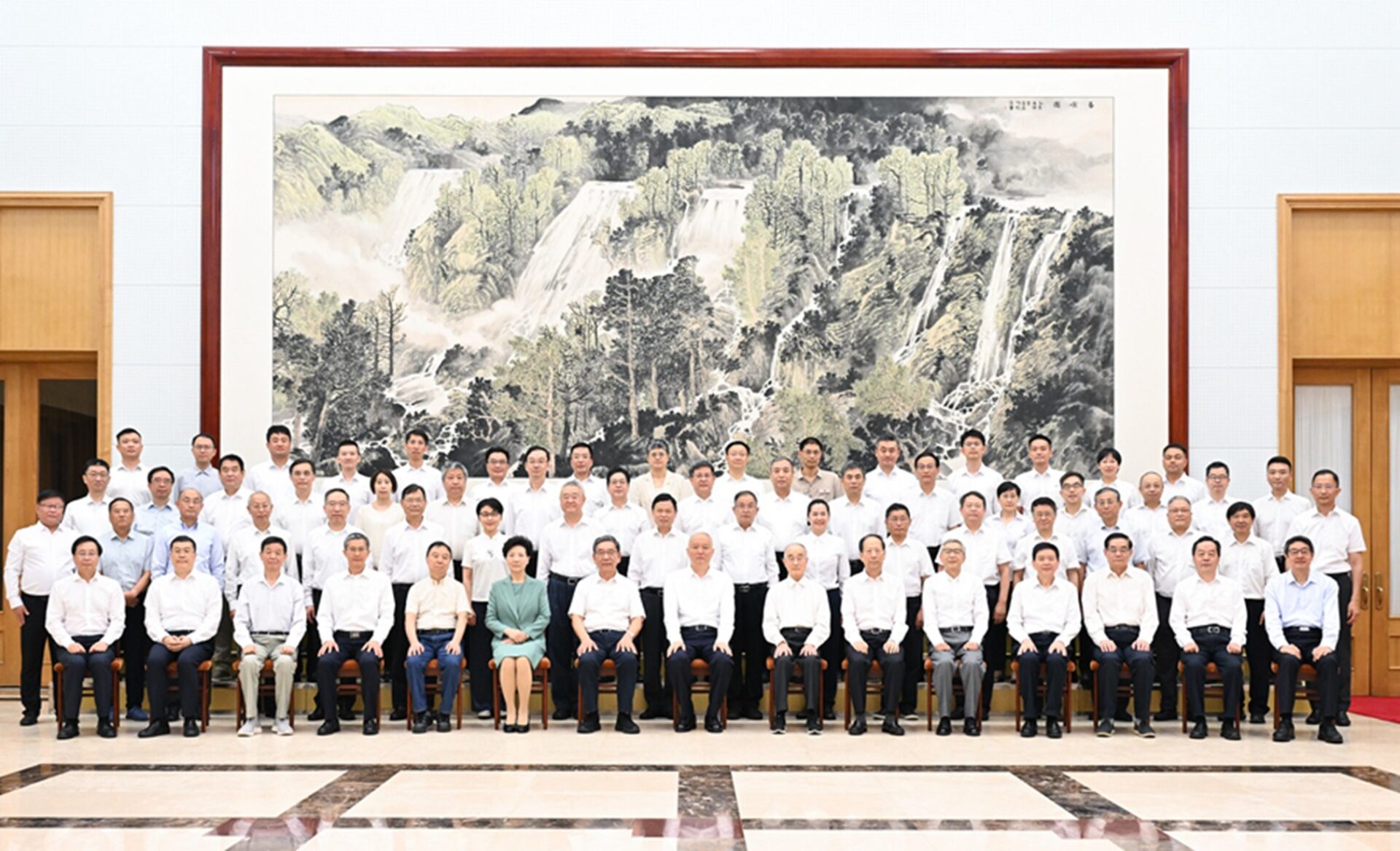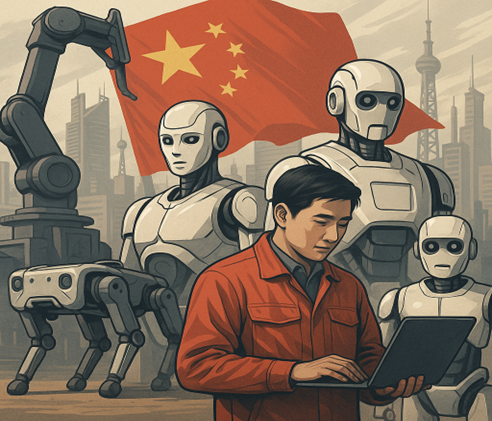
Government Cracks Down on SOEs but Runs Risks
Government Cracks Down on SOEs but Runs Risks
Executive Summary:
- The Supreme People’s Court and Central Government Regulators have put State-owned Enterprises (SOEs) on notice for fraudulent accounting practices, releasing five case studies to name and shame bad actors.
- The Central government made clear SOE fraud carries both economic risk and reputational risk to government legitimacy, as SOEs are instrumental to the implementation of Beijing’s ambitious policy agenda and are perceived as extensions of the state.
- The anticorruption drive could have negative externalities. The government is trying to engineer a shift to a new economic model while faced with soaring unemployment and straitened economic circumstances. SOEs are both major employers nationwide and pivotal to the country’s economic development.
- SOEs historically have enjoyed special privileges and lack of oversight, but their protected status has meant that reliable data on firm malpractice is difficult to come by, particularly at the provincial level and below.
On June 26 this year, the Supreme People’s Court (SPC) of the People’s Republic of China (PRC) issued a set of five case studies of corporate fraud that the court described as commonplace and a high priority for regulators to investigate and prosecute (STCN, June 27). In the opening paragraphs, the SPC says that these fraudulent cases appear in both private and state-owned enterprises, signaling that even companies owned and managed by local governments are not exempt from prosecution.
Three days later, the PRC’s financial regulatory bodies issued a co-signed guiding opinion on reducing financial fraud and implementing more comprehensive punishment for those caught in the act (MEE, July 17). Once again, state-owned enterprises (SOEs) are called out alongside privately owned ones. The opinion was signed by the China Securities Regulatory Commission (CSRC), the Ministry of Public Security, the Ministry of Finance, the People’s Bank of China, the Financial Regulatory Bureau, and the State-owned Assets Supervision and Administration Commission. On July 17, the State Council put its seal of approval on the statement and reissued it alongside a call for all provinces, ministries, commissions, and institutions that it oversees to carry out the contents of these opinions.
Amid coverage of attempts by Xi Jinping’s administration to tackle corruption within the People’s Liberation Army (PLA) and the implications this could have for the PRC’s military ambitions, this latest dive into institutional corruption aimed at SOEs has received less international coverage. Though the latter does not directly affect the country’s military capabilities, the anticorruption campaign will have a huge effect on civil society and has long term implications for the PRC’s domestic stability and its prospects for research and development.
Fraud Frequent Among Regional SOEs
SOEs play a large role in the PRC’s domestic economy, but their administration is highly regionalized. Parallel to the rest of the country’s civilian government, SOEs fall under different administrative levels, with the largest and most powerful controlled by the central government and others managed by provincial, city, or township governments. Today, the entral SOEs are multinational conglomerates and international contenders in their respective sectors. However, the vast majority of SOEs throughout the rest of the country are considerably smaller.
Regional SOEs do not have nationwide sway in the way that Central SOEs do, but they do enjoy considerable power and influence within the regions in which they reside. For example, in the late 2000s, many SOEs tried to manage their debt by making debt-equity swaps with the PRC’s Asset Management Companies (AMCs). This is a typical practice that offers the purchaser three options: They can either re-sell the debt to someone else, liquidate the company, or hold on to the equity long-term. At the time, however, local governments did not allow AMCs to take either of the first two options. This left only the third, which conveniently required the least change to SOEs themselves while providing enterprises with the greatest political and commercial shield (KK News, July 22, 2018).
Corruption within the PRC has never been confined to the government sector. Fighting commercial fraud is a longstanding goal of Xi Jinping’s government. The national social credit score system, best known internationally for cases where people have received boosts and demerits based on political actions, was originally created to make for a healthier financial credit system by emulating credit score systems commonly practiced in the United States or other developed economies. Additionally, as part of a push by PRC regulators to cut down on local corruption and fraud, corporate ownership records were made publicly available. [1]
The probability that regional SOEs also engage in fraud is fairly high, but given their political backing and protections it is difficult to get reliable estimates. Now that the government has declared its new focus on prosecuting SOE fraud, case studies are coming out of the woodwork and being published by the media.
SOE Fraud Involves Balance Sheet Manipulation, Fabrication
Based on case studies published this year, SOE fraud is very straightforward. Companies declare their costs to be significantly lower and their income to be significantly higher than they really are, allowing them to report higher profits.
Of the five cases published by the SPC, one case centers on an unnamed municipal state-owned investment company in Fujian province and the auditing firm they hired in 2020 to evaluate the price of a building the investment company counted as an asset (STCN, June 27). The initial appraisal priced the building at 60 million RMB ($8.36mn), but the SOE insisted the building instead be priced at 80mn RMB ($11.1mn). The final appraisal report of the property listed the price at 78.8mn RMB ($11.0mn). In 2021, the local government expropriated the property to cover debts accumulated by the SOE with the assumption the asset was worth the reported appraised price. It was only after investigation that the local government office found the falsified appraisal and discovered they were 20mn RMB ($2.79mn) short of where they expected.
The government of Guangdong Province published its own case study centered on state-owned fiber optics company Shenzhen SDG DONZHI Technology (SDGI; 特发东智) (Sohu, May 13). The company was found to have falsified its annual reported revenue for five consecutive years between 2015 and 2019 (Eastmoney, May 12). In April 2015, SDGI acquired a subsidiary called Dongzhi Technologies (东志科技). That same year, Dongzhi Technologies’ leadership signed an internal agreement that the net profit for Dongzhi between 2015 and 2017 would be at least 143mn RMB ($19.9m) and that between 2018 and 2020, it would be at least 58mn RMB ($8.08mnn). The company accomplished this by forging sale orders, underreporting costs, and moving the recorded date of purchases and sales based on when it would look best on their balance sheets. Dongzhi’s falsified profits translated into a bump in the total profits of parent company SDGI to the tune of 91.7mn RMB ($12.8mn) in 2016, accounting for 34 percent of SDGI’s total profits that year.
Another case study involved Shanghai-based engineering company SIIC-LongChuang Smartech (上海上实龙创智能科技). SIIC-LongChuang generated fake business contracts to inflate its revenue (STCN, June 4). These documents included claims that it was participating in trade related to Military-Civil Fusion, something that turned out to be entirely fictional (info.10000link, May 6). Between 2016 and 2021, the company included fake revenue amounting to 4.72 billion RMB ($650mn) and a profit of 614mn RMB ($84.6mn) in their annual reports. As with Dongzhi Technologies, these reports had ripple effects beyond SIIC itself. In 2017, the annual reports for SIIC’s parent company, state-owned Shanghai Industrial Development (上海实业发展), included cumulative profits, of which SIIC’s false reports constituted 18.3 percent of overall profits.
Tackling SOE Fraud
Regulators are not taking the issue of SOE fraud lightly and are responding with punitive measures. CSRC has amended commercial fraud laws to increase penalties against both corporate entities and individual persons (CSRC, July 5). Previously, corporate fraud convictions consisted of fines for entities of 600,000 RMB ($83,600), and individual perpetrators could be fined 300,000 RMB ($41,800) and imprisoned for 3 years. With the new changes, fines against entities have been raised to 10mn RMB ($1.39mn), and individuals face fines of 5mn RMB ($700,000) and prison terms of up to 10 years. Additionally, intermediaries who issue falsified certificates, such as the auditors in the Fujian case, can be sentenced to 10 years in prison.
These laws apply equally to privately held entities, but regulators view SOEs as posing unique risks to the economy. When describing the case of Dongzhi Technologies, the Guangdong government characterized SOE fraud as follows (Sohu, May 13):
“When facing operating pressure, some companies will choose to cover up the true operating conditions through fraud. However, this behavior is tantamount to drinking poison to quench thirst. Not only can it not solve the fundamental problem, but it will increase the company’s operating risks and eventually fall into a deeper predicament. … Among state-owned listed companies, financial fraud is even more related to the image of the country. Once it loses the trust of the people, it will inevitably weaken the public’s trust in state-owned enterprises (一些公司在面临经营压力时,会选择通过财务造假来掩盖真实的经营状况。然而,这种行为无异于饮鸩止渴,不仅不能解决根本问题,反而会加剧公司的经营风险,最终陷入更深的困境 … 在国有上市公司中,财务造假更是关乎国家形象,一旦失信于民,必将削弱公众对国有企业的信任).”
For regulators—and for Xi’s administration more broadly—SOEs are seen as extensions of the state, and therefore, their actions impact the government’s perceptions. In this way, SOE corruption is more than simply an issue of commercial malpractice; it calls into question the regime’s competence and legitimacy.
Wider Implications
Regional SOEs in the PRC are used to enjoying unique privileges due to their position as enterprises owned and controlled by local governments. Now, as the State Council names and shames local SOEs and provides instructions to prosecute similar cases to those it highlights, it is possible that SOEs will no longer be as indestructible as they were in the past.
Cleaning house serves Beijing’s interests well. National-level policymakers are aware and accept that many regional SOEs are inefficient and draw away fiscal resources that could have greater impact elsewhere. More importantly, Beijing depends on regional governments and enterprises to report on what is happening locally. Without reliable reporting, the central government is left blind when formulating policy. Beijing is also acutely aware of this, as it has previously had to deal with the fallout from policy mistakes borne in part out of distorted reporting from local governments. [2]
Investigating balance sheets is a double-edged sword, however, and regulators will have to be mindful of the negative externalities of this anticorruption drive. Executives at SOEs sit in cross-functional positions, somewhere between corporate stewards and career civil servants, and both the individuals and the enterprises often have close relationships within government. Moreover, SOEs are usually a source of long-term stable employment for non-executives. Depending on how wide a net regulators cast, these investigations could affect the careers of many at a time when stable employment is hard to find. This, in turn, could risk stimulating social unrest.
Another risk is that the PRC’s long-term research and development (R&D) goals could be affected. Regional SOEs are an important channel through which local governments pursue national scientific development goals, both directly through research carried out by SOEs and indirectly through state-owned investment companies. Budgets for R&D could disappear once true revenue figures come to light and difficult cuts have to be made. Even for companies that have stayed on the straight and narrow, there will be greater pressure to be conservative with budgets and less flexibility for researchers to modify projects to reflect unforeseen opportunities or complications.
Conclusion
Xi Jinping’s administration has gone after corruption in the military. Now, it is going after fraud in SOEs. How this gamble will play out in the long term remains to be seen. What is clear is that another pocket of the PRC’s governing authority and civil society that thought it could operate under the radar is now under the microscope.
Notes
[1] Corporate ownership records have since become the basis of several foreign policy research consulting firms’ market research and open-source databases.
[2] The Great Leap Forward during the Mao era constitutes the most egregious and indelible such example.


